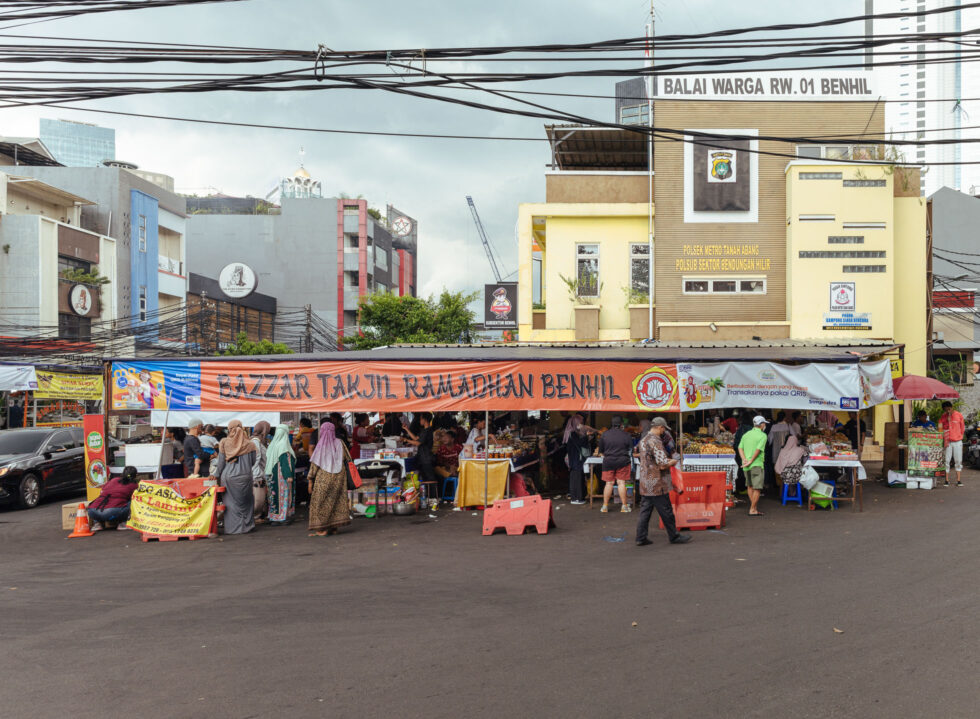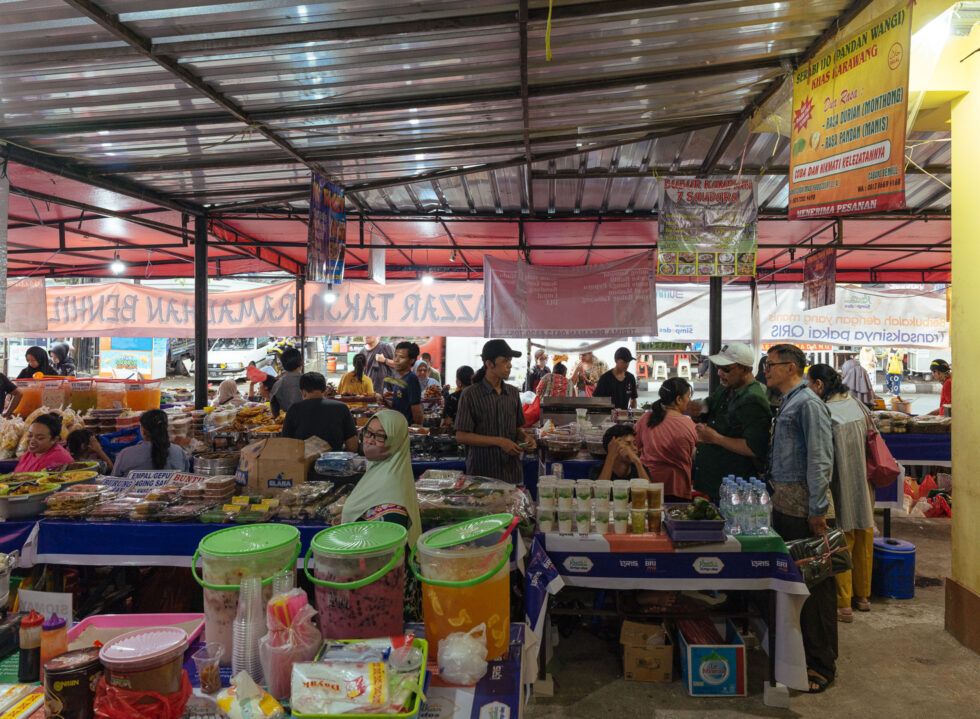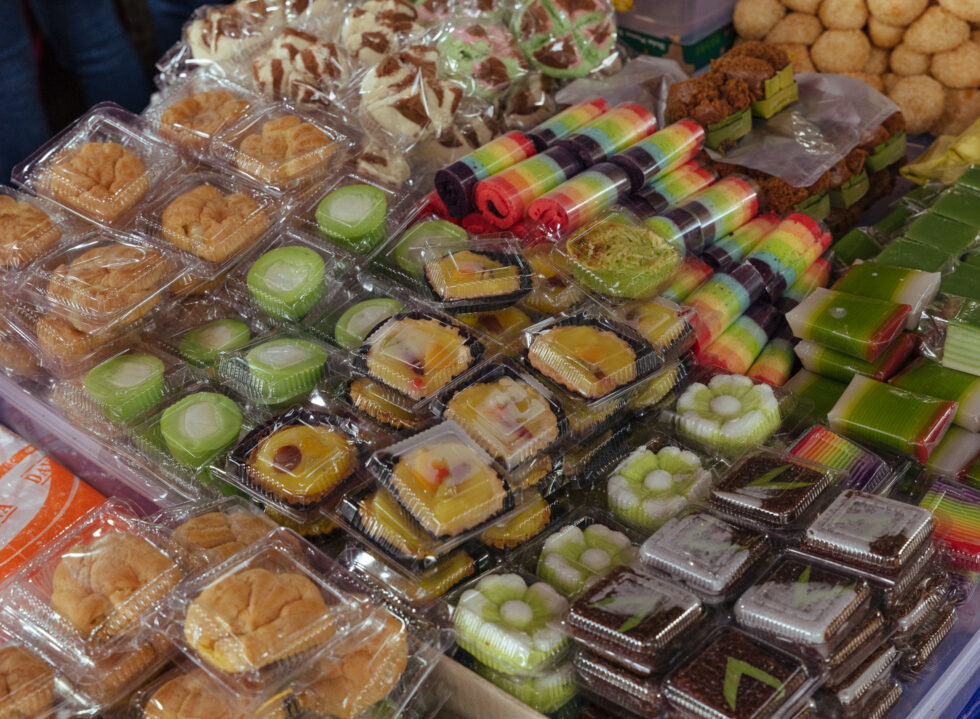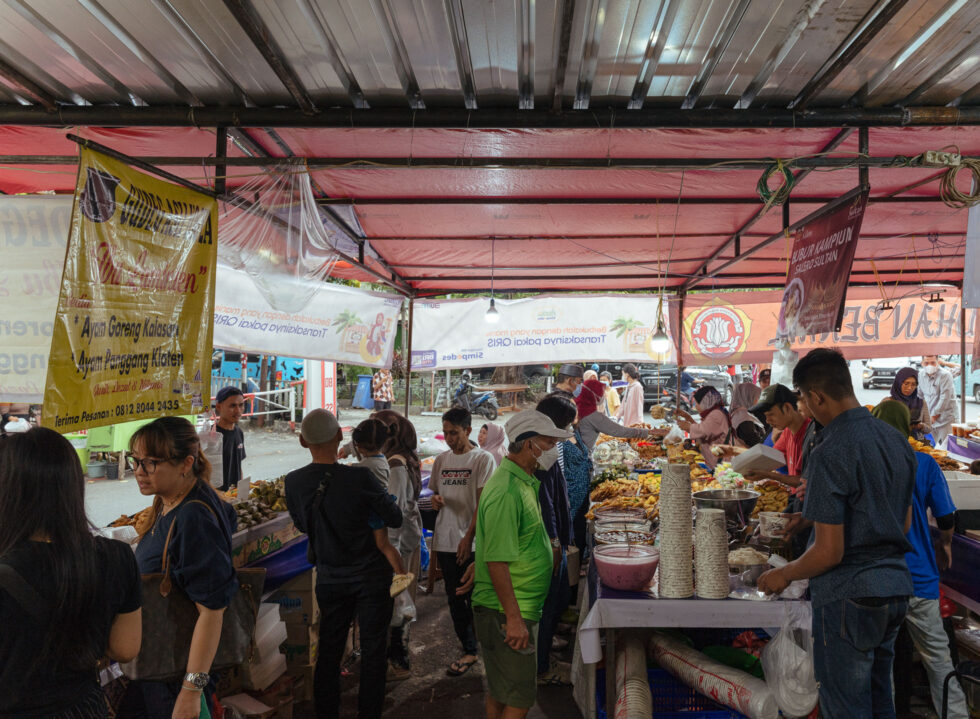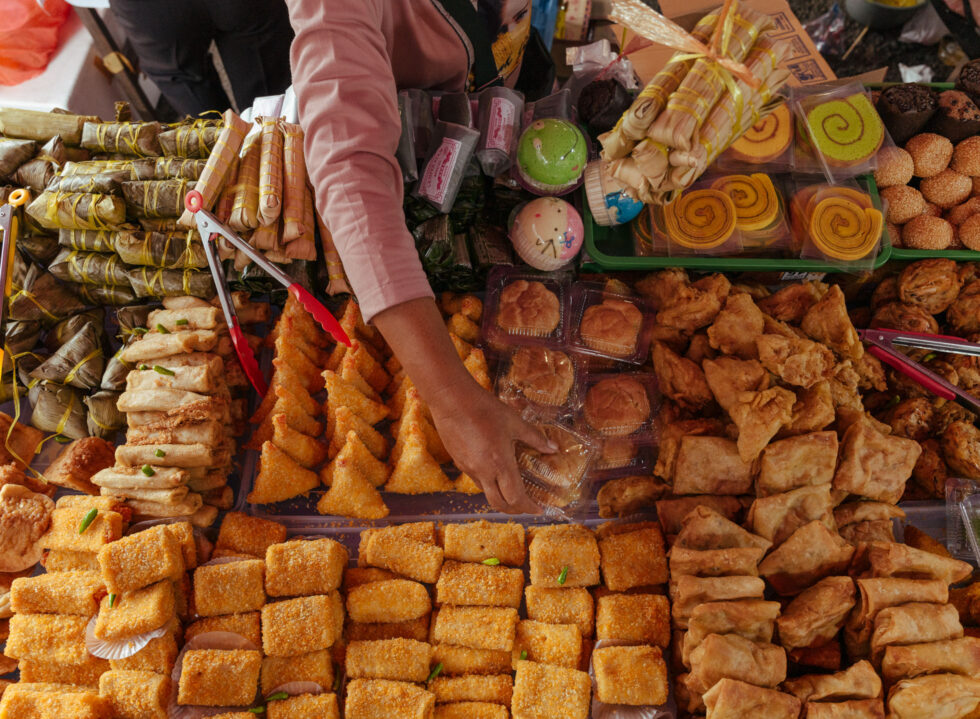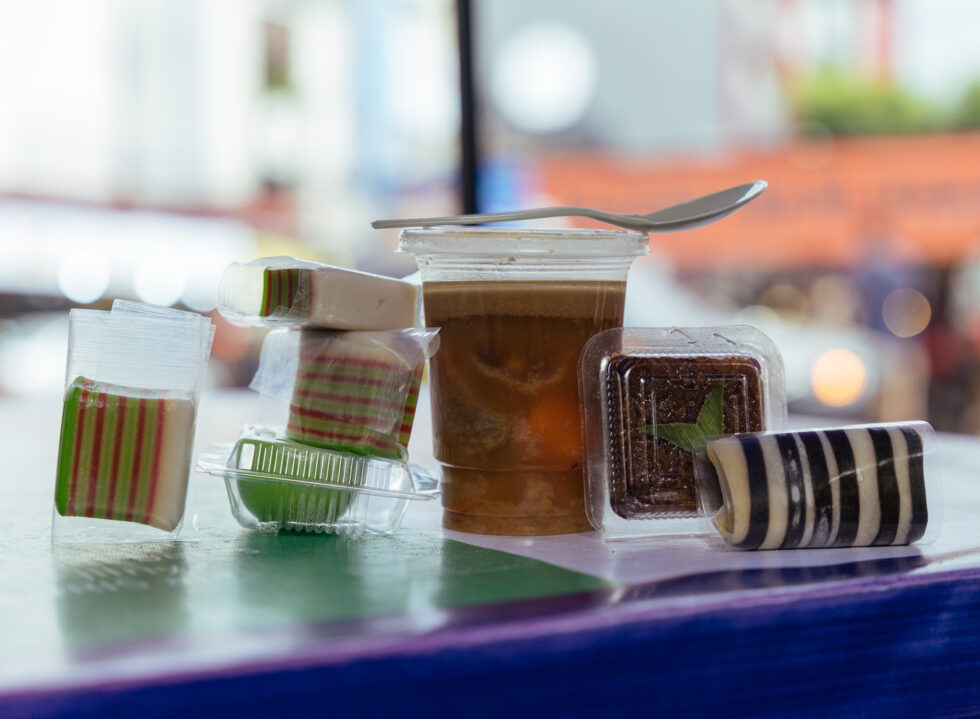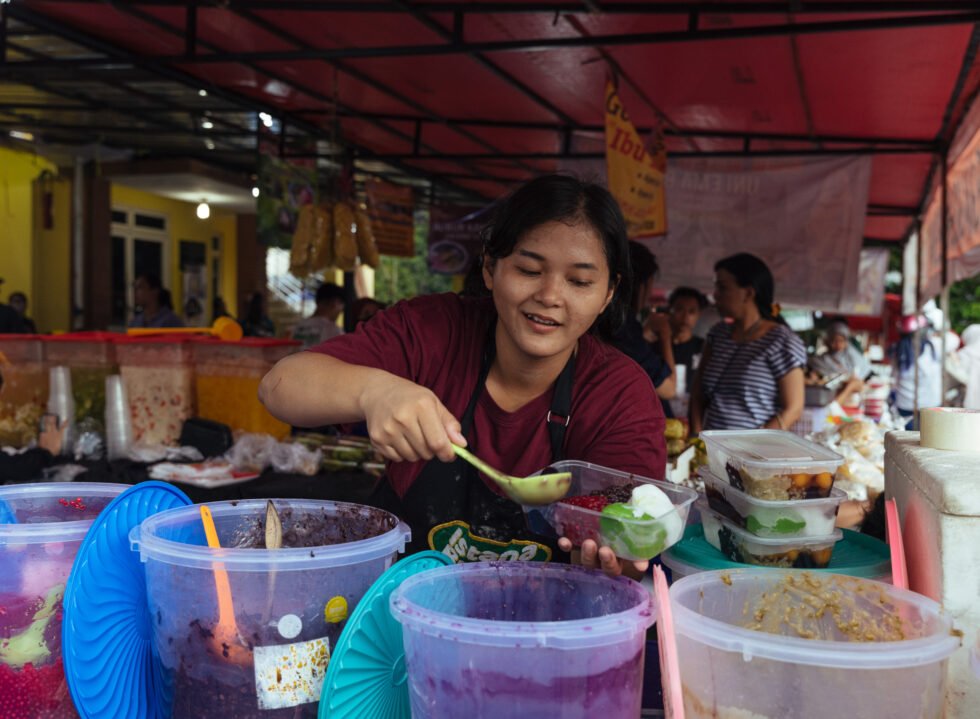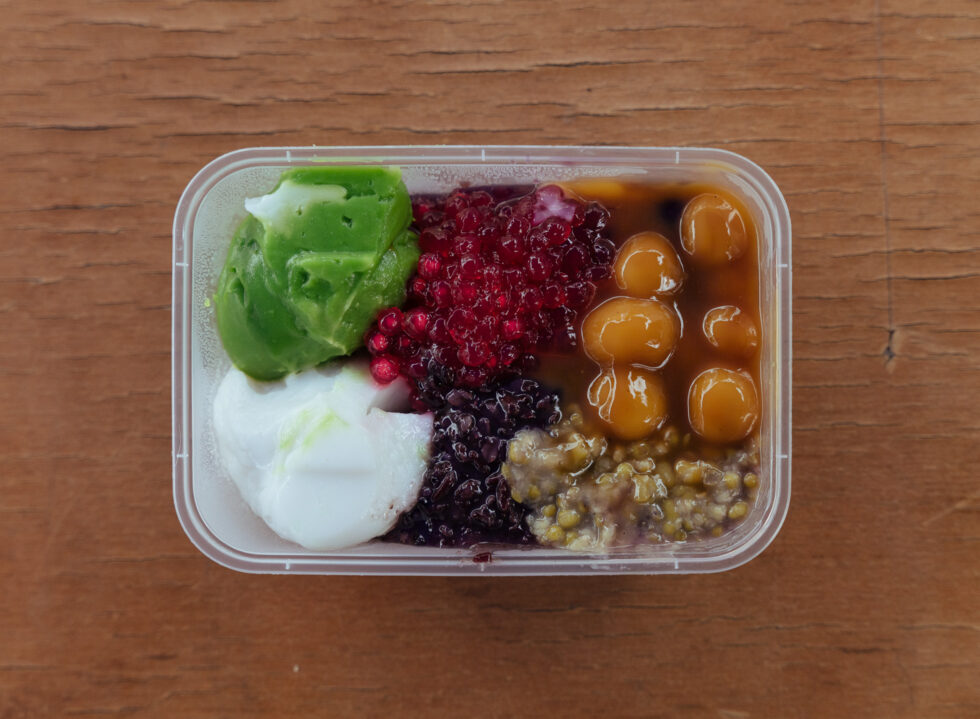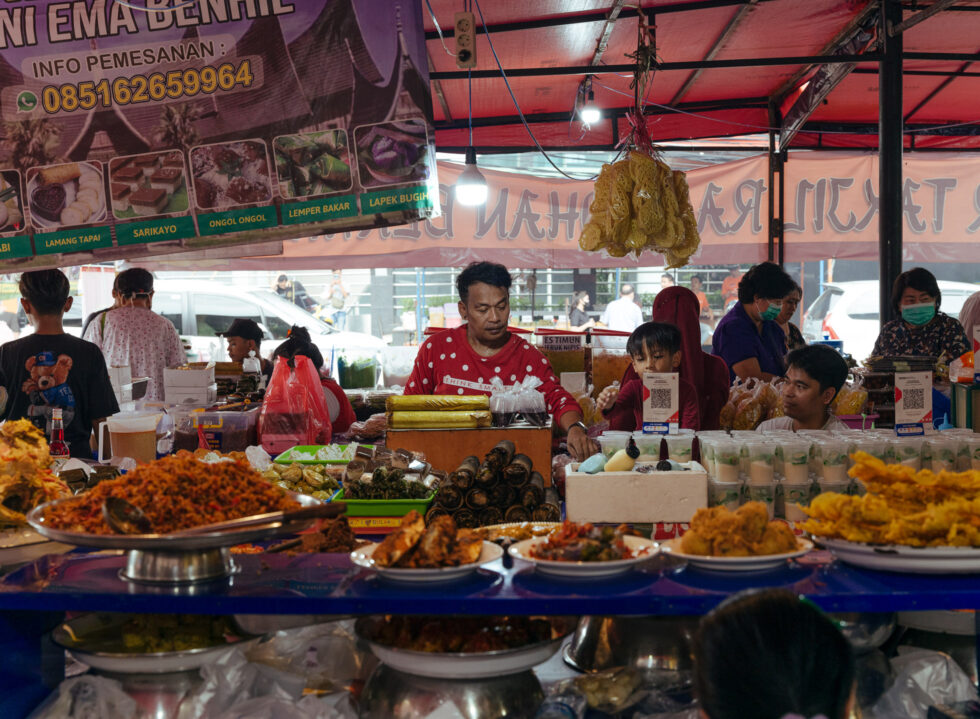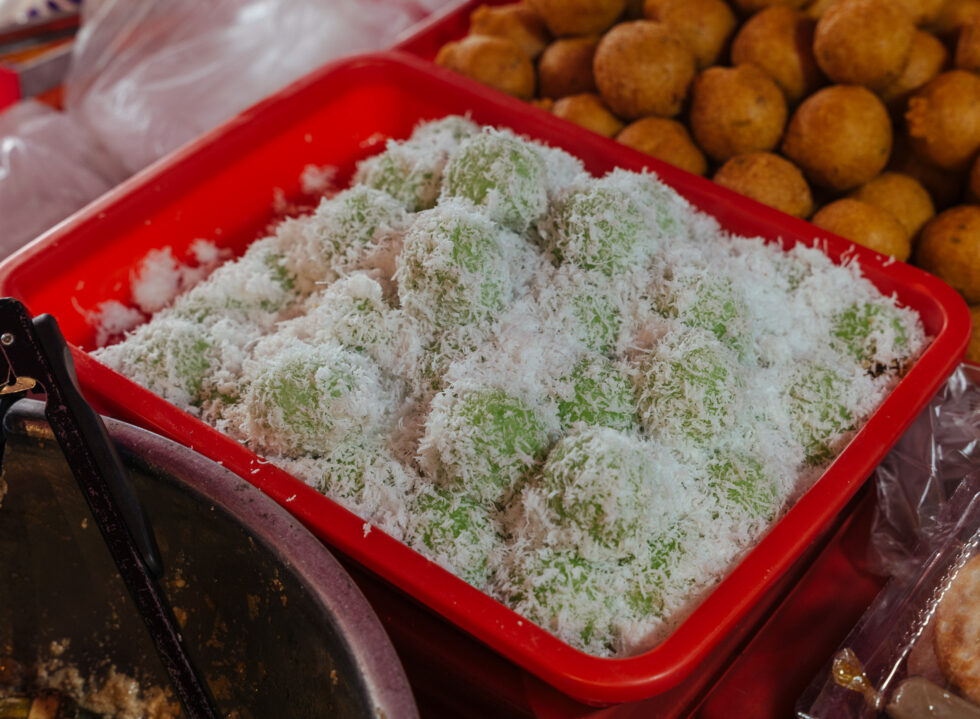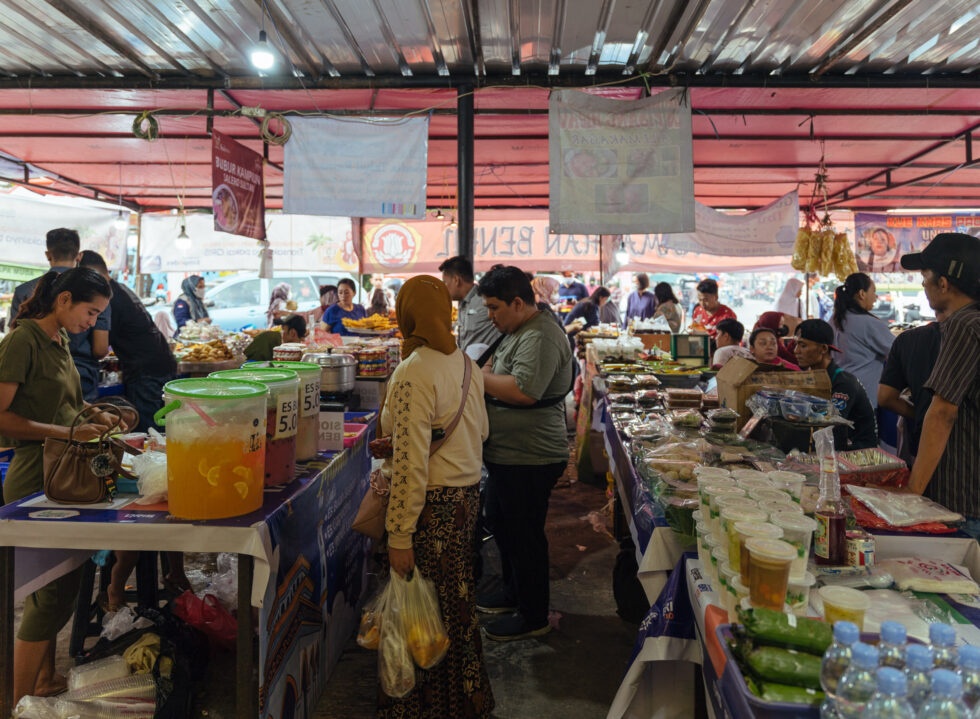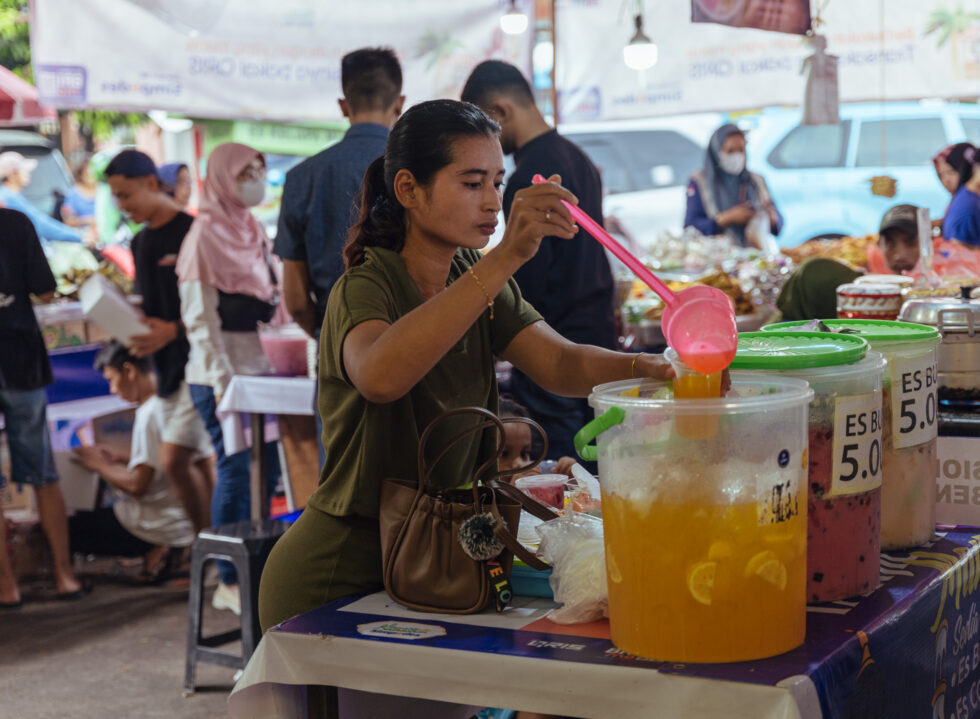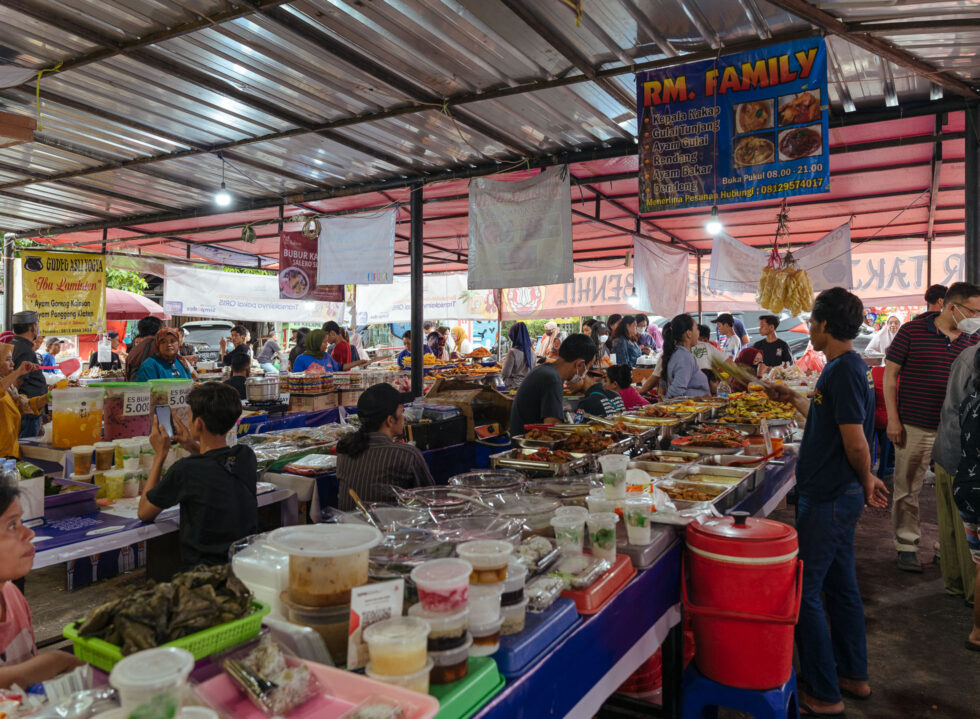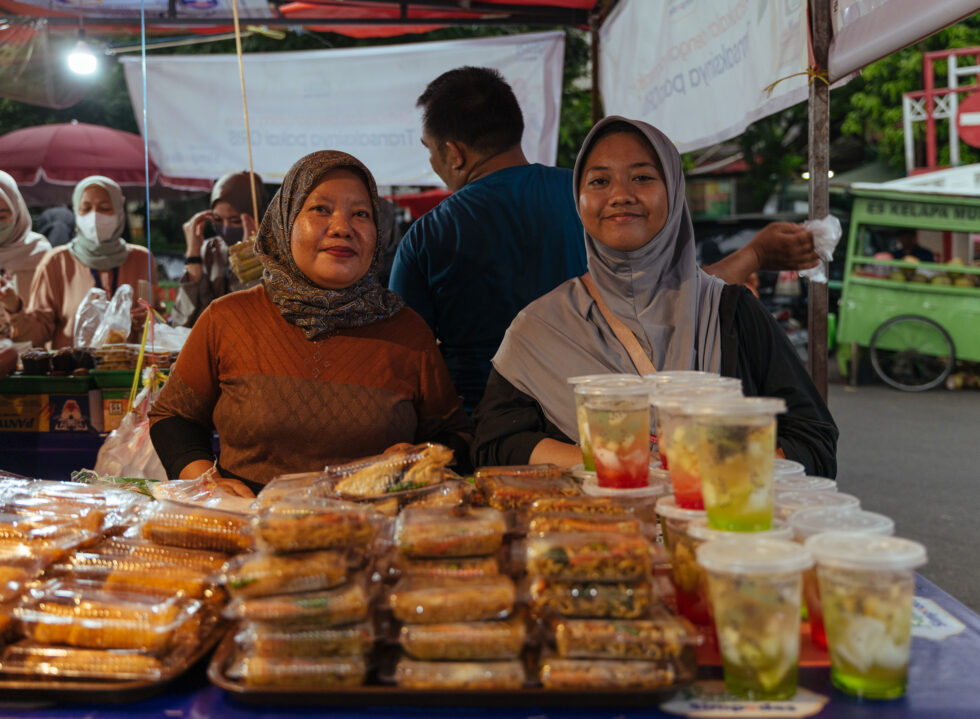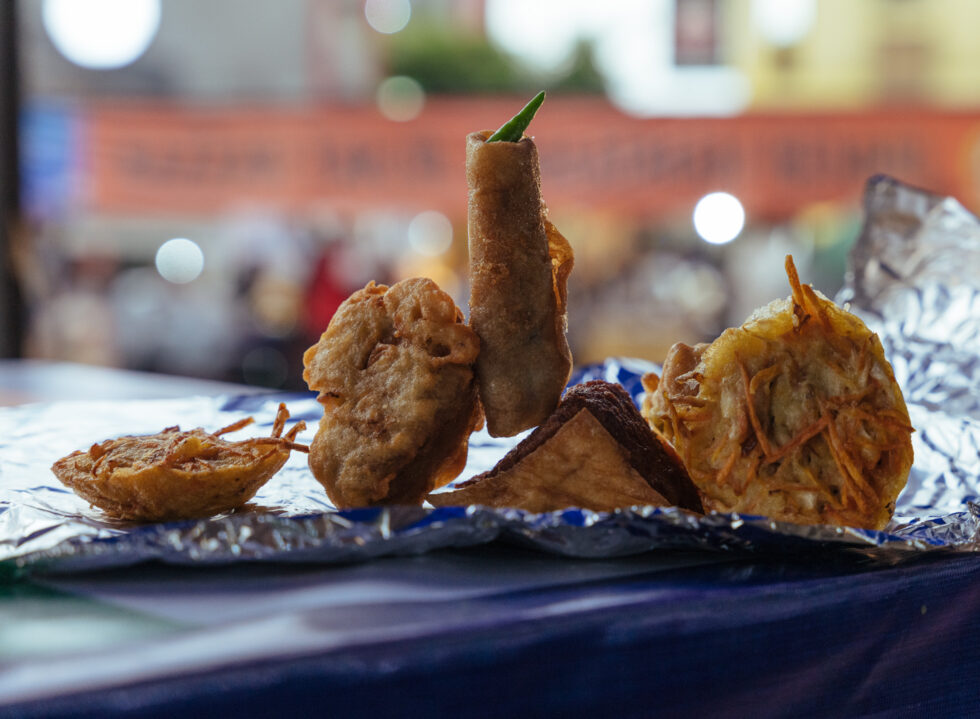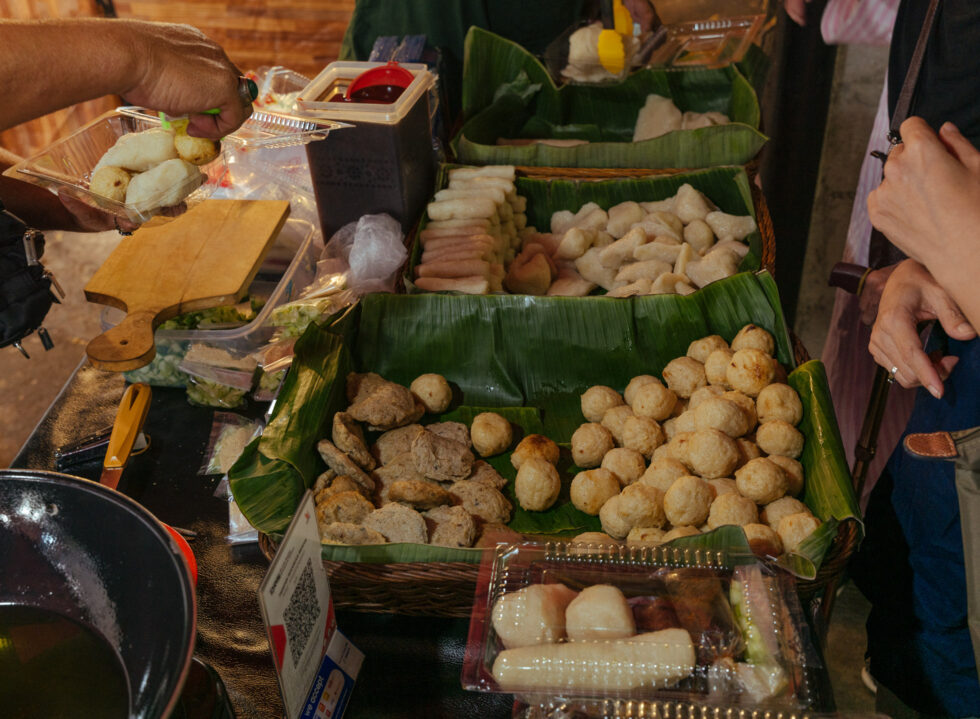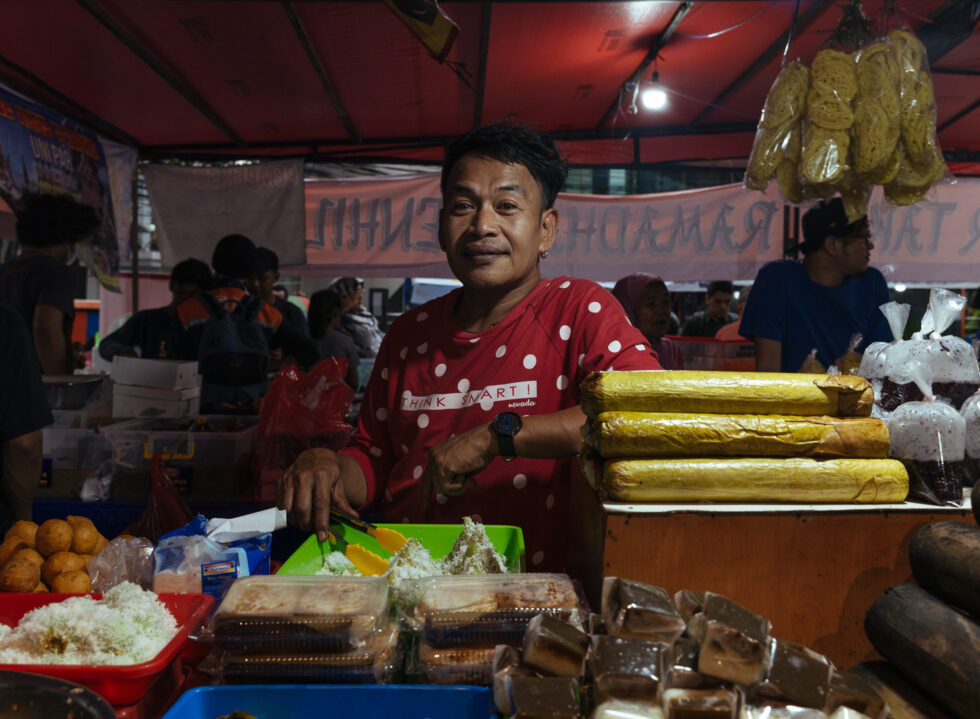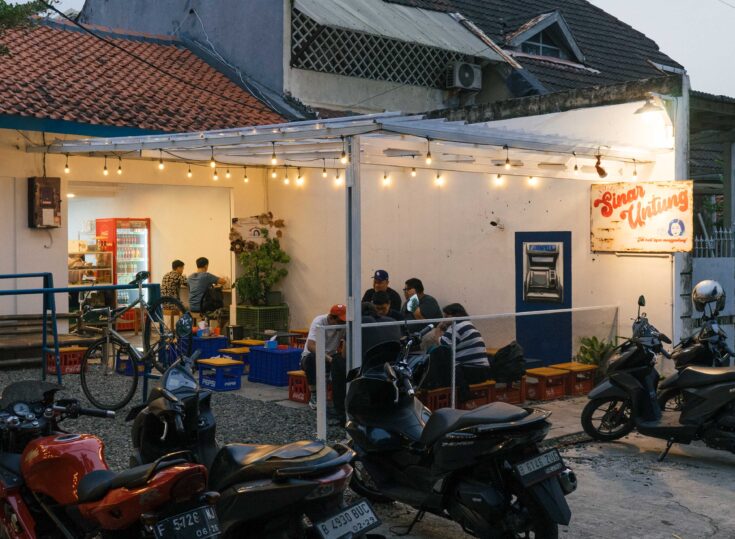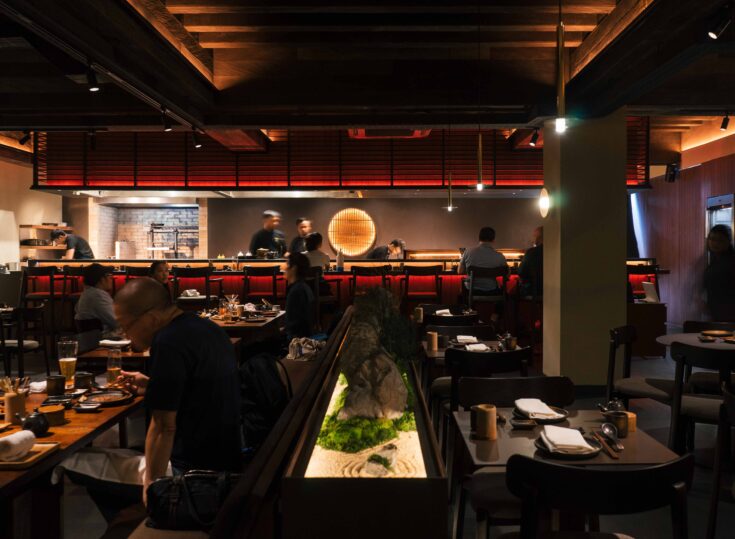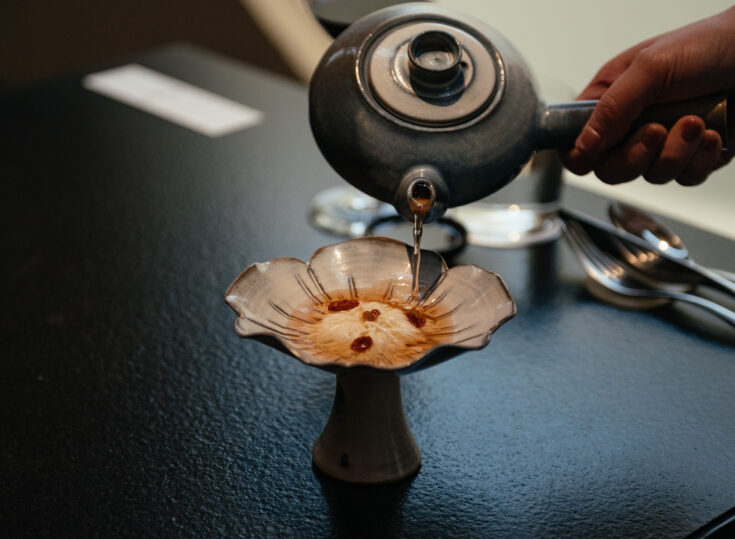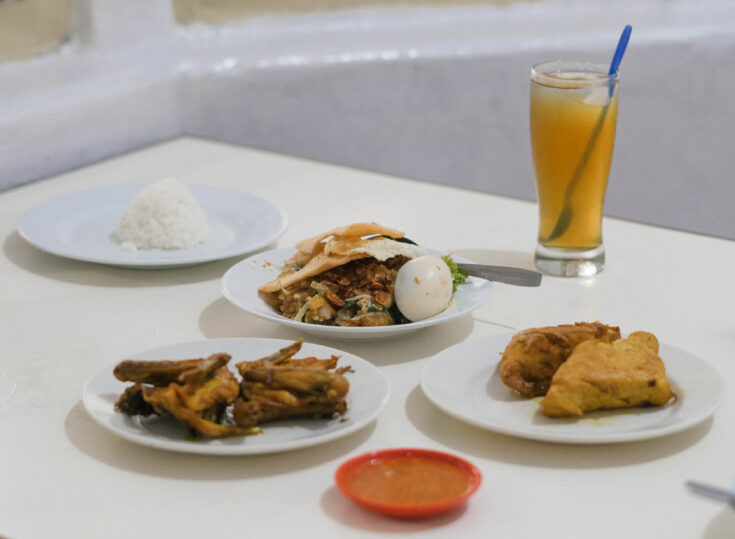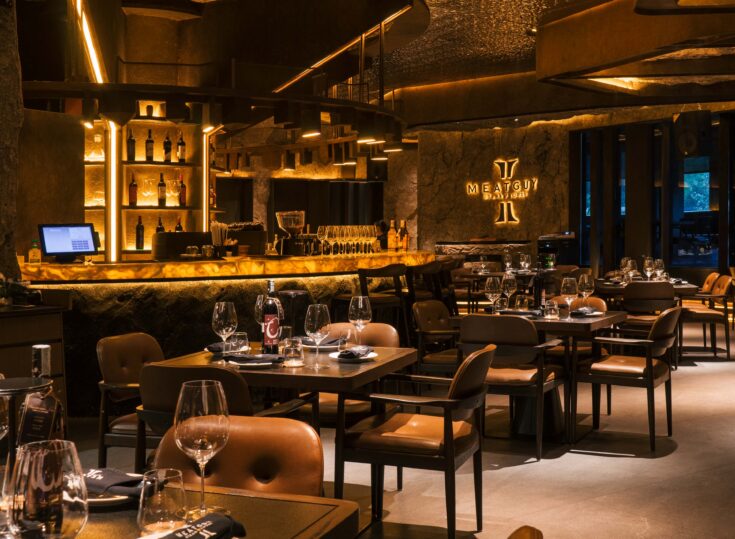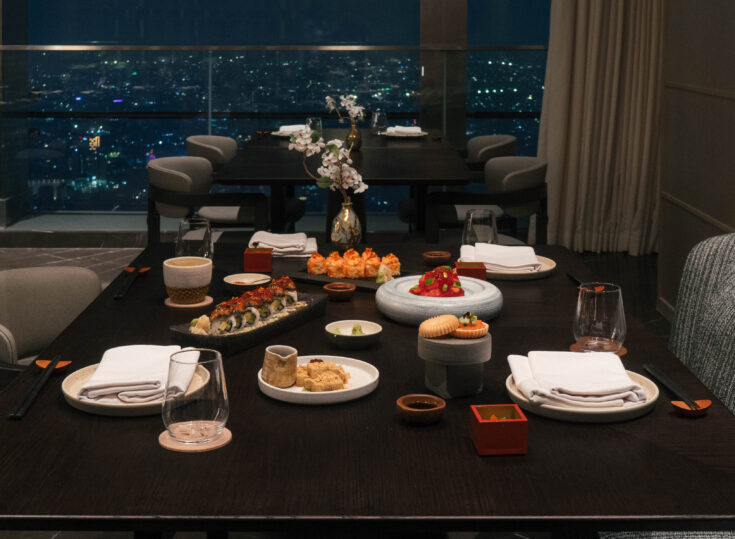As the sun descends closer to the horizon during the holy month of Ramadan, the big junction in the lively Bendungan Hilir or Benhil neighbourhood turns into something that is akin to a battlefield. Patience runs low on an empty stomach, and a mere few minutes walk away from high-rise buildings and swanky establishments like The Orient Hotel, loud beeps of vehicle horns are exchanged between one hurried driver to another, each one on a race against the setting sun to reach home just in time for iftar, the meal to break one’s fast.
On the other side of the scene, a makeshift market is afoot. Set under the shadow of Balai Warga RW 01 Benhil citizen hall, a long orange banner declares its name: Bazzar [sic.] Takjil Ramadhan Benhil (Benhil’s Ramadan Bazaar for Takjil), or simply known as Bazar Takjil Benhil. The mood is chummy and festive, propelled by a performance of live music, striking a peculiar irony to the rush hour chaos that surrounds it.
As specified in its name, the specialty of the bazaar lies in its range of takjil. It is an Indonesian term that refers to the light bites and sweet treats Muslims around the world ritualistically savour to initiate their iftar meal, with each country having its own culture and culinary mainstays attached to the tradition. In Indonesia particularly, the act of shopping for takjil favourites like kolak (a dessert of steamed banana and sweet potato in a sweet soup of coconut milk, palm sugar, cloves and pandan leaf) has become an integral part of the day-to-day routine throughout the holy month.
It’s why every year during Ramadan, one would be able to see numerous street vendors lining the roads. Their presence is especially prominent around residential areas, where neighbourhood people make up the majority of the sellers.
This is how the current Bazar Takjil Benhil got its start. Established in 2013 by the leaders of the RW (rukun warga, a small administrative unit unique to Indonesia that comprises several neighbourhoods called RT, rukun tetangga), tenants came from those living in the area and/or their relatives—and so did the customers. Unfortunately, the first two years of the pandemic put a halt to that. But when the bazaar returned last year, it did so with a bang, inviting a community of long-time takjil sellers around the neighbourhood to join its ranks.
The experienced ‘newcomers’
Previously operating from Pasar Benhil, the incoming takjil community can be considered the OGs in the area. They had been setting up their yearly bazaar in the neighbourhood since 1985, long before the one on the junction took shape. A massive hit among the city’s Muslim communities, a trip there became a yearly tradition during Ramadan, where well-loved establishments like the West Sumatran eatery Bopet Mini sit between tenants from all over the city selling off their respective takjil specialties.
But it met the same fate as Bazar Takjil Benhil—everything had to stop when the pandemic hit. So when the two takjil bazaars joined together at the junction last year, it was undoubtedly met with a lot of excitement, which continues up to this day.
“[It’s because of] the bazaar’s legendary status,” explained Benhil resident and content creator Atina Rizki Sabila when asked to share about the appeal of shopping at Bazar Takjil Benhil. Early this Ramadan, she made a video of her trip there. It racked up over 1,000 likes on TikTok. “The bazaar at Pasar Benhil was famous for having a rich variety of [local] cuisines. West Sumatran dishes, in particular, were plenty in supply. I think people expected the same diversity of food as before. “
Atina went on to note that Bopet Mini and many other well-known vendors no longer take part in the new bazaar, likely due to the reduction of space that came with the move. But it’s not all lost.
Uni Ema’s stall of West Sumatran desserts, a fixture of the Pasar Benhil bazaar with over 20 years of experience, remains with its steady stream of customers. In the absence of the eponymous figure, her brother leads the operation instead; his earrings blink in the fluorescent light as he serves customers with a selection of lamang tapai (a combination of wood-fired white sticky rice and fermented red sticky rice), sala lauak (fried rice flour balls with anchovy) and lupis (a glutinous rice dessert covered in shaves of coconut meat). “We made [these treats] ourselves,” he proclaimed with an easy smile.
Surrounding their stall, one could also find more West Sumatran takjil as well as iftar specialties. There’s sarikayo (sugar apple dessert), lapek bugih (glutinous rice flour cake with sweetened coconut filling) and ongol-ongol (a soft, brown-coloured mochi-like dessert). Alongside them, plated stacks of ayam bakar (grilled chicken), rendang and ikan balado (fried fish coated in sambal) fill the corridors of the bazaar, while the smoky and spiced scent of meat cooked over charred coconut husks awakens one’s appetite.
The coming together
And yet amidst these new additions to the food bazaar, its neighbourly charm remains intact. “[The atmosphere] hasn’t really changed,” shared Ayu Khusnul Khotimah, a takjil tenant from the neighbourhood, when asked about having to share the space with the sellers from Pasar Benhil. “They easily connected with the people in the neighbourhood. We give each other extras from our stock, and when somebody wants to eat, we trade food with one another.”
The 18-year-old teenager just recently graduated from vocational school, but she’s been helping with her aunt’s shop, called Dapur Nure, for some time now. Their table is filled with fried foods, including noodles, bakso tahu (tofu stuffed with meatballs) and the crowd favourite, rissoles. There’s also a variety of fruit cocktails like the well-loved passion fruit-flavoured es kuwut, a sweet and sour iced drink that originates from Bali.
“We’ll start shopping and gathering our ingredients at 9 am, then begin cooking around noon to make sure that everything remains fresh until it’s time to break the fast,” shared Ayu of her and her aunt Eel Suhartini’s day-to-day routines throughout Ramadan. They usually arrive at the market by 1.30 pm to set up.
“Many of my longtime regulars came from SMP 181, the junior high school nearby. Since the ’90s, way before the bazaar was here, I’ve been accompanying my husband Surip at his iced coconut water cart right across the street,” added Eel. “The students came after school. Now they’re grown and have successful careers of their own. But they still miss me sometimes, and when they do, they’d come [to the bazaar] just to buy our drinks.”
At Bazar Takjil Benhil, the crowd peaks at 4 pm. Women garbed simply in daster (house dress) and sandals are a common sight. Elder patrons in casual polo shirts and baseball caps amble to the junction for some fritters and jajanan pasar (Javanese cakes). The takjil bazaar has seemingly become a zone of comfort for nearby residents, shared among fellow neighbours.
Surprisingly, mixed among these neighbourhood people are also those who entered the city borders just to satisfy their curiosity about the bazaar. “So many of our customers come from faraway places, including Bekasi,” noted Ayu.
It’s something that Atina has also noticed, seeing the attention garnered by the bazaar on social media. More than just the food, a sense of togetherness has drawn this variety of communities. “There’s so much enthusiasm [for the bazaar]!” gushed Atina. “People these days like to take part in something that is trendy. But that’s what makes shopping for takjil there so fun, and it is what keeps the bazaar alive and filled with tenants.”
